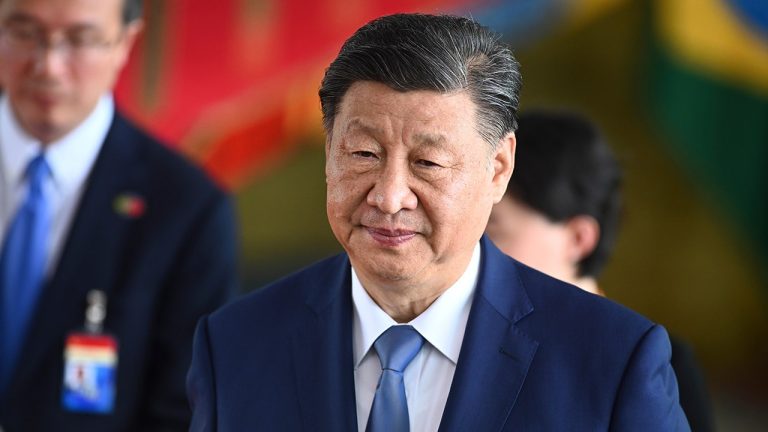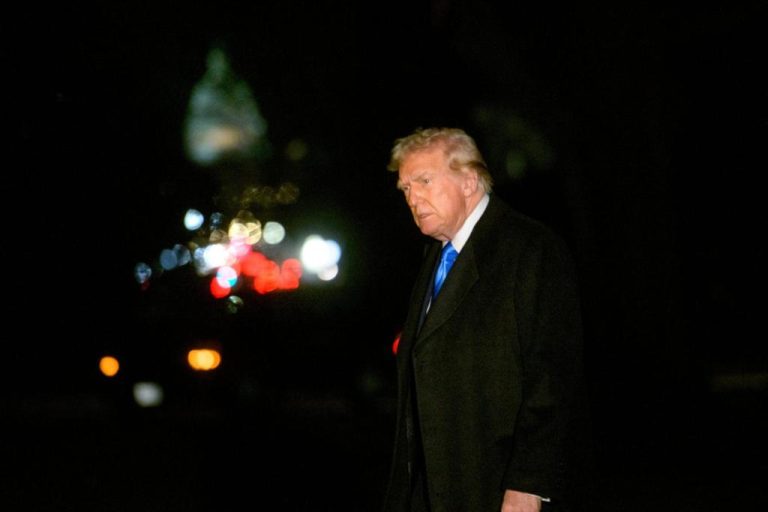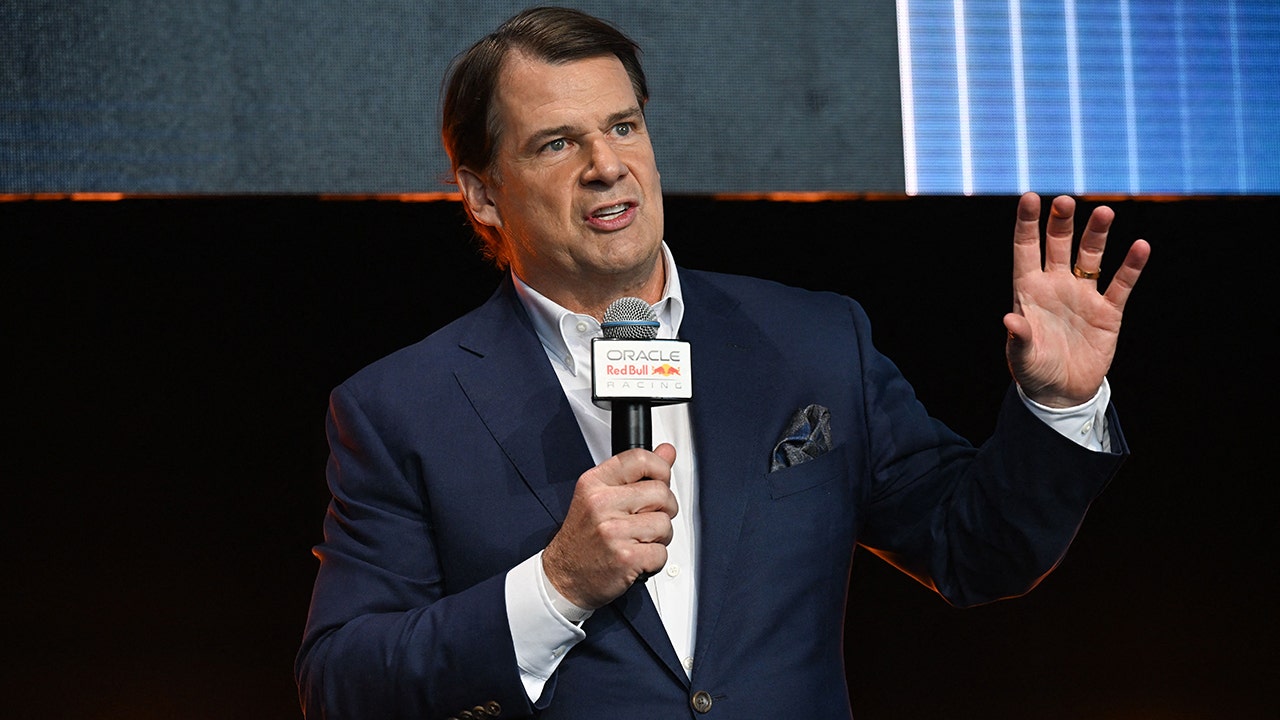
United Auto Workers President Shawn Fain on Wednesday endorsed President Biden for re-election and claimed former President Donald Trump ‘doesn’t care about the American worker.’
Ford’s top boss, CEO Jim Farley, said Thursday that the company will “think carefully” about where it builds future vehicles following the United Auto Workers (UAW) strike.
The strike came with a heavy price for the Detroit automaker. For one, the company’s Kentucky Truck Plant in Louisville was the first to shut down when thousands of UAW union members walked off the job.
It was a major play in the UAW’s strike last fall against Detroit’s Big Three automakers — Ford, General Motors and Stellantis.
THE UAW STRIKE MIGHT BE OVER, BUT WILL CONSUMERS FEEL IT LATER?
During the Wolfe Research Global Auto Conference in New York, Farley said the strike had been “an extremely difficult moment” for the company, noting Ford had “prided itself on not having a strike since ’70.”
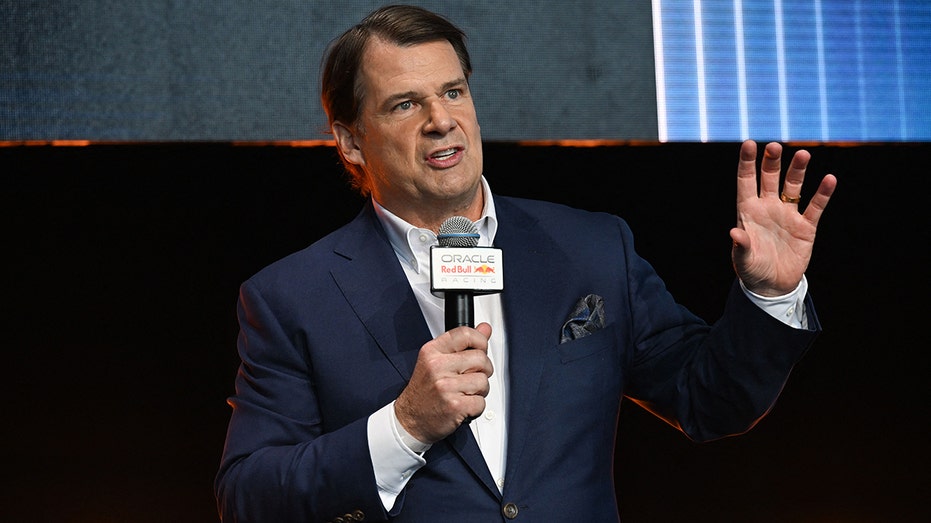
Ford CEO Jim Farley attends a Red Bull Racing unveiling of the team’s new Formula One car during a launch event in New York City on Feb. 3. (ED JONES/AFP via Getty Images / Getty Images)
He continued by saying that Ford, unlike its competitors, has 57,000 UAW workers and that 100% of its trucks are made by such workers in the U.S.
“Our competitors do not do that. They went through bankruptcy, and they moved production to Mexico and other places. So it has always been a cost for us. And we always thought it was the right kind of cost,” he said.
UAW HITS GM AGAIN, STRIKING AT AUTOMAKER’S LARGEST PLANT
The moment Ford’s plant shut down was a “watershed moment.”
“Really, our relationship has changed,” Farley told the conference. “Does this have business impact? Yes.”
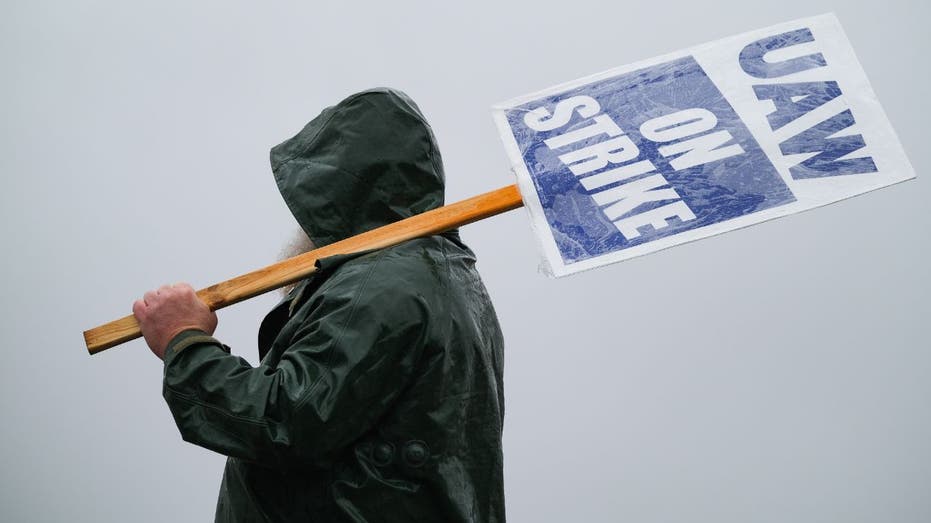
A “UAW On Strike” sign is held by a picketer outside the General Motors Co. Spring Hill Manufacturing plant in Spring Hill, Tennessee, on Oct. 30, 2023. (Kevin Wurm/Bloomberg via Getty Images / Getty Images)
In a statement to The Associated Press, UAW President Shawn Fain argued that Ford should “find a CEO who’s interested in the future of this country’s auto industry.”
“Maybe Ford doesn’t need to move factories to find the cheapest labor on Earth,” he said. “Maybe it needs to recommit to American workers.”
GET FOX BUSINESS ON THE GO BY CLICKING HERE
President Biden marched alongside the UAW last September and told union members to “stick with it.”
| Ticker | Security | Last | Change | Change % |
|---|---|---|---|---|
| F | FORD MOTOR CO. | 12.30 | -0.22 | -1.76% |
It was the first time a president appeared alongside striking workers in modern history.
The work stoppage cost the industry billions of dollars, and the Big Three all ratified record contracts with the union in order to get production lines running again.


